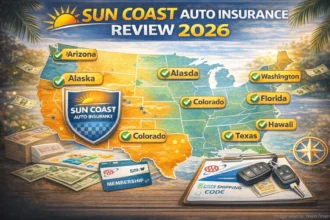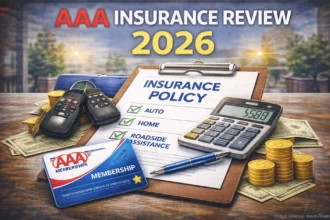In today’s fast-paced world, where financial stability plays a pivotal role in achieving your life goals, credit cards have become indispensable tools. They offer convenience, security, and purchasing power. However, one of the most crucial factors that determine how beneficial a credit card can be is its credit limit. In this article, we will explore guide to increasing your credit card limits, ultimately improving your financial flexibility.
Understanding the Importance of Credit Limits
Credit limits are like financial guardrails. They define the maximum amount you can borrow on your credit card. While it might seem restrictive, credit limits serve several essential purposes.
What is a Credit Card Limit?
A credit card limit is the maximum amount set by your bank or financial institution, representing the total amount you can spend on your credit card. For example, if your credit card has a limit of $100,000, you cannot exceed this amount in your purchases. The credit card limit is determined by the bank when you apply for the card, taking various factors into account.
How Banks Determine Your Credit Card Limit
Your creditworthiness plays a crucial role in determining your credit card limit. Banks evaluate several factors to assess your financial reliability:
- Credit Score: Your credit score is a numeric representation of your credit history. A higher score often leads to a more substantial credit limit
- Income and Employment Status: Your income and job stability are considered. A stable income source increases your chances of a higher limit.
- Spending Habits: Banks assess your spending patterns, including your previous credit card usage and repayment behavior.
- Age and Credit History: Your age and credit history also influence your credit limit.
While some banks offer credit cards with predetermined limits, others may conduct a thorough analysis of your financial situation before granting a higher limit.
The Role of Credit Limits in Financial Planning
Credit limits act as safety nets, preventing you from accumulating excessive debt that you cannot repay. They promote responsible spending and budgeting, encouraging you to stay within your means.
How Higher Limits Benefit Cardholders
Unlocking higher credit card limits can be a game-changer. It grants you increased purchasing power, especially for significant expenses like home repairs, medical bills, or unexpected emergencies. Additionally, higher limits can positively impact your credit score, as they demonstrate trustworthiness in managing credit responsibly.
Factors Affecting Your Credit Limit
Before delving into strategies for increasing your credit limit, it’s essential to understand the factors that influence it.
Credit Score: The Foundation of Your Credit Limit
Your credit score is a numerical representation of your creditworthiness. Lenders use this score to assess the risk of lending to you. A higher credit score often leads to a more substantial credit limit.
Income and Employment Stability
Lenders also consider your income and employment history when determining your credit limit. A stable job and income source increase your chances of receiving a higher limit.
Existing Credit Utilization
The percentage of your available credit that you’re currently using, known as credit utilization, plays a significant role. Lower utilization rates can lead to higher credit limits.
Building a Strong Credit Score
Now that we’ve established the importance of your credit score, let’s explore how to boost it.
Paying Bills on Time
Timely payment of bills, including credit card bills, is crucial for maintaining a good credit score. Late payments can significantly impact your score negatively.
Reducing Outstanding Debt
Paying down outstanding debts can quickly improve your credit score. Focus on reducing credit card balances to below 30% of your credit limit.
Managing Credit Inquiries
Avoid excessive credit inquiries within a short period, as they can lower your score. Be selective about applying for new credit.
How to Increase Your Credit Card Limit
If you’re looking to boost your credit card limit, here are some effective strategies to consider:
Clear Your Dues on Time
Paying your credit card bills on time is one of the most effective ways to improve your credit limit. Timely payments not only safeguard your credit score but also demonstrate your responsible financial behavior to the bank.
Avoid Maxing Out Your Credit Limit
Resist the urge to use your entire credit limit. Experts recommend using no more than 30% to 40% of your credit limit. This low credit utilization shows that you’re not overly reliant on your credit card for daily expenses, which can positively impact your credit score.
Settle Existing Loans
Before requesting a credit limit increase, consider paying off any outstanding loans, such as home or personal loans. Banks often evaluate your existing debt before granting a higher limit. Reducing your debt burden can increase your chances of approval.
Provide Income Proof
Your income is a crucial factor in determining your credit card limit. To support your request for a higher limit, provide updated income proof, such as payslips or income certificates. This information can significantly influence the bank’s decision.
Requesting a Credit Limit Increase
If you’re looking to unlock a higher credit limit, requesting an increase is a proactive step.
When Is the Right Time to Ask?
Choose the right moment to request a credit limit increase. Factors like a higher credit score and a history of responsible card usage can increase your chances of approval.
Preparing for the Application
Before applying, ensure your account is in good standing. Review your credit report for inaccuracies and address any issues.
Tips for a Successful Request
Craft a persuasive request, highlighting your responsible card usage and the benefits of a higher limit for both you and the credit card company.
Alternative Options for Increasing Limits
If a direct increase request is unsuccessful, explore alternative options.
Adding a Co-Signer or Authorized User
Having a co-signer or authorized user with a strong credit history can boost your chances of getting a higher limit.
Exploring Credit Line Increases Automatically
Some credit card issuers automatically review and increase credit limits for eligible cardholders. Be aware of these programs and their criteria.
Benefits of Increasing Your Credit Card Limit
Let’s delve into the positive outcomes of unlocking higher credit limits.
Boosting Your Credit Score
A higher credit limit can lower your credit utilization ratio, positively impacting your credit score.
Enhancing Financial Flexibility
Higher limits offer peace of mind, allowing you to address unforeseen expenses without relying on costly loans or high-interest options.
Emergency Financial Safety Net
In emergencies, having a higher credit limit can serve as a valuable safety net, providing immediate financial relief.
Dealing with Rejections
If your credit limit increase request is denied, don’t lose hope.
Understanding the Reasons Behind Denial
Contact your credit card issuer to understand why your request was denied. It may be due to a low credit score or insufficient credit history.
Steps to Take After Rejection
Focus on improving your credit score, reducing debt, and demonstrating responsible credit card usage to increase your chances of success in the future.
Maintaining Responsible Credit Card Use
Unlocking a higher credit limit is only part of the equation; responsible usage is crucial.
Avoiding Overspending
Resist the temptation to overspend just because you have a higher limit. Stick to your budget and financial plan.
Paying More Than the Minimum Balance
Paying more than the minimum balance not only reduces debt faster but also showcases responsible credit management.
Monitoring Your Credit Regularly
Regularly monitoring your credit report can help you spot errors, identity theft, or unauthorized activity early on.
Balancing Multiple Credit Cards
Managing multiple credit cards can be a challenging but rewarding endeavor. When used wisely, multiple cards can offer financial flexibility, rewards, and improved credit scores. However, to make the most of this financial tool, it’s crucial to strike the right balance and avoid common pitfalls. In this guide, we’ll explore strategies for effectively managing multiple credit cards.
Organization is Key
Maintaining a clear and organized system for managing your credit cards is essential. Create a spreadsheet or use a financial app to track each card’s details, including credit limits, interest rates, due dates, and outstanding balances. Regularly updating this information ensures you stay on top of your financial commitments.
Set Reminders for Due Dates
Missing credit card payments can lead to late fees and damage your credit score. Set up reminders or alerts for each card’s due date to ensure timely payments. Many financial apps offer this feature, making it easier to stay organized.
Responsible Use of Credit
Avoid the temptation to max out all your credit cards simultaneously. A general rule of thumb is to maintain a credit utilization ratio (credit used compared to credit available) of no more than 30%. High credit utilization can negatively impact your credit score. By spreading your expenses across multiple cards and keeping balances low, you can maintain a healthy utilization rate.
Prioritize High-Interest Debt
If you have multiple cards with varying interest rates, prioritize paying off the card with the highest interest rate first. This strategy, known as the “avalanche method,” saves you money on interest payments over time.
Consider a Balance Transfer
If you’re struggling with high-interest debt on one or more cards, explore the possibility of a balance transfer. This involves moving the balance from a high-interest card to one with a lower or 0% introductory APR. Be aware of transfer fees and ensure you can pay off the balance within the promotional period to maximize savings.
Use Cards Strategically
Different credit cards offer various benefits, such as cashback rewards, travel points, or low-interest rates. Use each card strategically based on your spending habits and financial goals. For example, use a cashback card for everyday expenses and a travel rewards card for vacations.
Keep Older Accounts Active
The length of your credit history contributes to your credit score. Closing older credit card accounts can potentially lower your credit score, so consider keeping them open, even if you use them sparingly. Periodic small purchases and timely payments can help maintain an active and positive credit history.
Be Cautious About Opening New Cards
While new credit cards can provide additional benefits and rewards, be cautious about opening too many accounts in a short period. Each credit inquiry can temporarily lower your credit score. Only apply for new cards when it aligns with your financial goals and you can manage them responsibly.
Review Statements Carefully
Regularly review your credit card statements to identify any unauthorized or suspicious charges. Promptly report any discrepancies to your card issuer to protect your financial security.
Monitor Your Credit
Use a free credit monitoring service to keep an eye on your credit score and credit report. This can help you detect and address any errors or potential issues early.
Implications of Multiple Credit Cards
While managing multiple credit cards can be advantageous, it also requires discipline and diligence. Here are some key implications to keep in mind:
- Credit Limit Calculations: Having multiple cards affects how credit limits are calculated, as issuers consider your total available credit. Be mindful of this when applying for new cards.
- Credit Inquiries: Each credit card application may result in a hard inquiry, which can temporarily lower your credit score. Avoid opening multiple cards within a short timeframe if you plan to apply for a significant loan, such as a mortgage.
- Rewards and Benefits: Different cards offer various rewards and benefits. Understand the terms and conditions of each card to maximize their advantages.
- Closing Accounts: Closing credit card accounts can impact your credit utilization ratio and credit history. Consider the long-term implications before closing an account.
READ ALSO: Looking for Travel-friendly Credit Cards? This guide is for you
Balancing multiple credit cards can offer financial benefits and flexibility when managed responsibly. It’s essential to stay organized, use each card strategically, and prioritize responsible credit use. By following these guidelines and understanding the implications, you can make the most of your multiple credit cards while maintaining a strong financial foundation.
Seeking Professional Guidance
When navigating the complex world of credit, don’t hesitate to seek professional advice.
Credit Counselors and Financial Advisors
Experienced professionals can provide tailored guidance to help you make informed financial decisions.
When to Consider Professional Help
You should consider professional help if you’re overwhelmed by debt, facing credit issues, or planning significant financial changes.
Understanding the Difference: Total Credit Card Limit vs. Available Credit
It’s essential to differentiate between your total credit card limit and available credit:
- Total Credit Limit: This is the maximum borrowing amount set by your bank. Going over this limit often results in over-limit fees.
- Available Credit Limit: This is the current remaining balance available on your credit card. For instance, if your credit card limit is $10,000, and you’ve spent $3,000, your available credit limit is $7,000, while the total credit limit remains $10,000.
Can Banks Change Credit Card Limits?
Yes, banks or lenders have the authority to adjust your credit card limit. Responsible credit card use, including timely payments and low credit utilization, can lead to an increase in your credit limit. However, consistent late payments and accumulating debt may prompt the bank to reduce your credit limit, which can negatively affect your credit score.
Common Myths About Credit Limits
Credit limits are an integral part of the financial world, shaping how individuals manage their spending and credit cards. However, there are several myths and misconceptions surrounding credit limits that can lead to misunderstandings and poor financial decisions. In this article, we’ll debunk some of the most common myths about credit limits to help you make informed financial choices.
A Higher Credit Limit Means More Debt
While it may seem counterintuitive, having a higher credit limit does not automatically lead to more debt. Your credit card limit represents your borrowing capacity, but it’s your responsibility to manage how much you use. A higher limit can actually improve your credit utilization ratio, potentially benefiting your credit score if you maintain low balances.
Credit Limits Are Set in Stone
Credit limits are not immutable. Banks and credit card issuers regularly review your creditworthiness. Responsible financial behavior, such as on-time payments and low credit utilization, can lead to credit limit increases. Conversely, poor financial habits may result in a reduced limit.
Increasing Your Credit Limit Hurts Your Credit Score
Requesting a credit limit increase does not inherently harm your credit score. In fact, it can potentially benefit your score by reducing your credit utilization ratio. However, some issuers may perform a hard inquiry when you request an increase, which can have a minor, temporary impact on your score. Overall, the long-term benefits of a higher limit often outweigh any short-term dip.
Credit Limit Increases Lead to Overspending
A credit limit increase can tempt some individuals to overspend, but it’s not the sole cause of overspending. Responsible credit card use involves budgeting, financial discipline, and avoiding spending beyond your means. If you use your credit card wisely, a higher limit can provide financial flexibility without increasing your risk of overspending.
A Low Credit Limit Is Always a Bad Thing
While a low credit limit can be limiting in terms of available credit, it’s not necessarily a negative factor. Some individuals prefer lower limits to control their spending and minimize the risk of accumulating high levels of debt. Low limits can also be a useful tool for those building or rebuilding their credit history.
Credit Limits Are Solely Based on Income
While your income plays a significant role in determining your credit limit, it’s not the sole factor. Credit card issuers also consider your credit history, payment behavior, credit utilization, and other financial indicators. Individuals with high incomes but poor credit histories may receive lower credit limits than expected.
Closing Credit Cards Increases Your Credit Limit
Closing a credit card account does not increase your credit limit; it reduces it. Your credit limit is the combined total of all your open credit card accounts. Closing a card decreases your available credit, potentially raising your credit utilization ratio and impacting your credit score negatively.
A Higher Credit Limit Means You’re Rich
Your credit limit is not an indicator of your wealth or income. Credit card issuers set limits based on various factors, including creditworthiness and risk assessment. You can have a high credit limit and still face financial challenges, so it’s essential to manage your finances wisely regardless of your limit.
Understanding the reality behind these common credit limit myths is crucial for responsible credit card management. Your credit limit is a tool that can either help or hinder your financial well-being, depending on how you use it. By debunking these myths, you can make informed decisions and navigate the world of credit with confidence.
FAQs (Frequently Asked Questions)
Can I request a credit limit increase if I have a low credit score?
- While it may be more challenging with a low score, improving your creditworthiness can increase your chances of approval.
How often should I check my credit report?
- Regularly monitoring your credit report is advisable, at least annually or before significant financial decisions.
Do all credit card issuers offer automatic credit line increases?
- No, not all issuers offer this service. Check with your specific credit card company for details.
What’s the ideal credit utilization ratio for maximizing my credit score?
- Aim to keep your credit card balances below 30% of your credit limit for optimal score improvement.
Is there a limit to how many credit cards I can have?
- There isn’t a strict limit, but consider your ability to manage multiple cards responsibly and the impact on your credit limit calculations.
Unlocking higher credit card limits can significantly impact your financial well-being. By following the steps and strategies outlined in this article, you can work towards achieving greater financial freedom and security.
Conclusion
Unlocking higher credit card limits is a pivotal step toward achieving financial freedom. By understanding the factors that influence your credit limits and implementing responsible credit management practices, you can access greater financial flexibility and security.
A credit card can be a valuable financial tool, but it’s essential to use it responsibly. While increasing your credit card limit can offer numerous benefits, it also comes with the temptation to overspend. To maintain financial health, keep your credit utilization ratio low, never miss payment deadlines, and manage your credit responsibly.
If you can resist the urge to overspend and make mindful financial decisions, your credit card can be a valuable asset in achieving your financial goals. Always evaluate your spending behavior and ask critical questions before making purchases to ensure you stay within your means.
For further guidance, consider consulting a financial advisor or credit counselor to tailor a strategy that suits your unique financial situation.
In other article, Best 0% Interest Credit Cards with 0% Intro APR Period Until 2025





